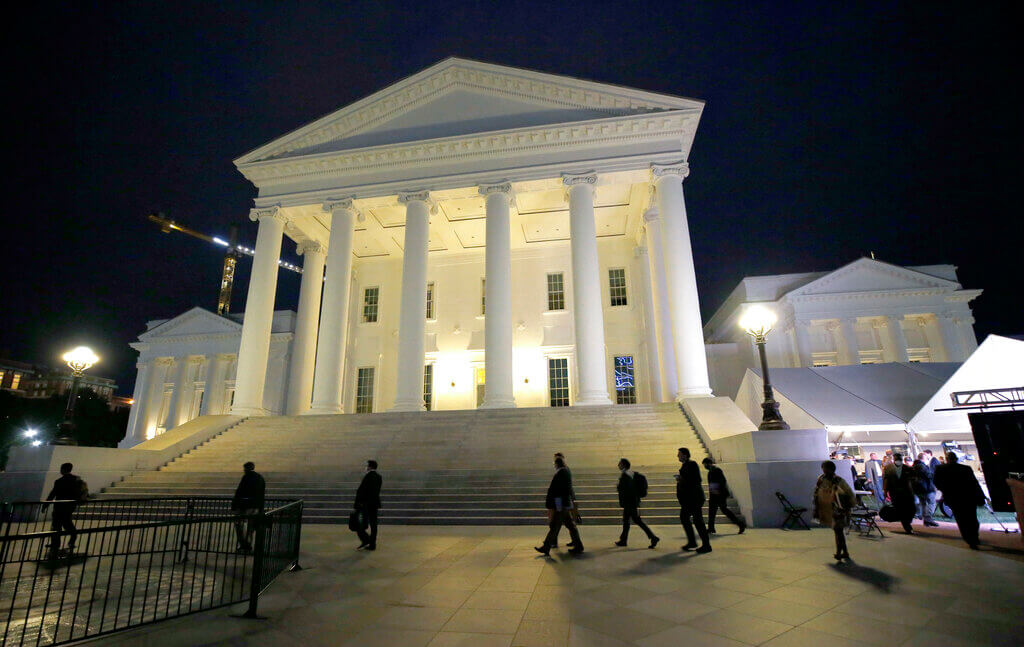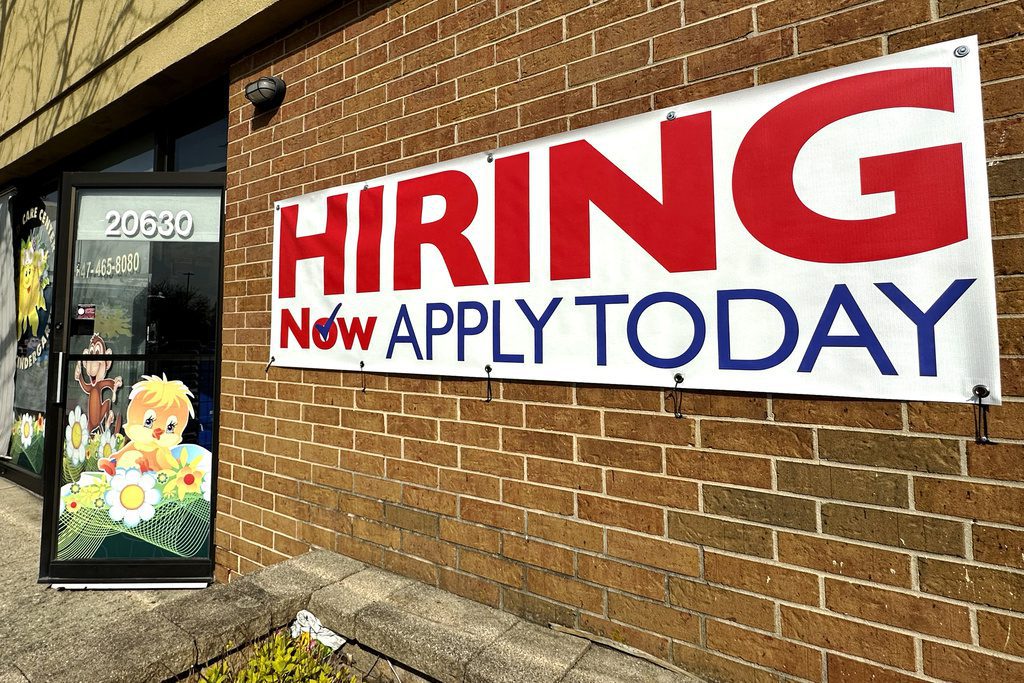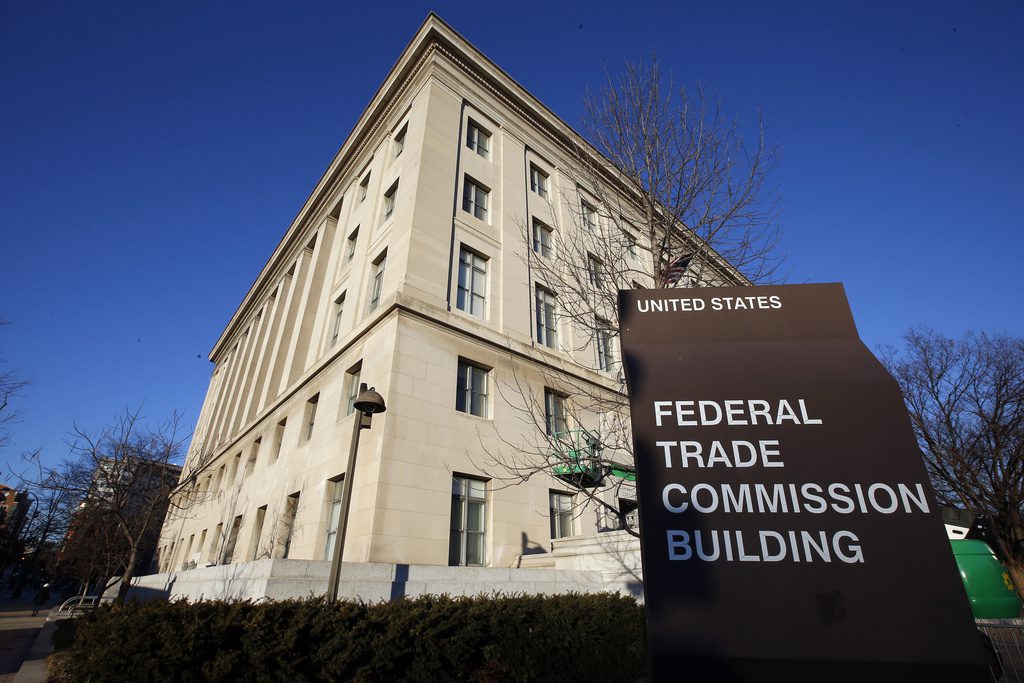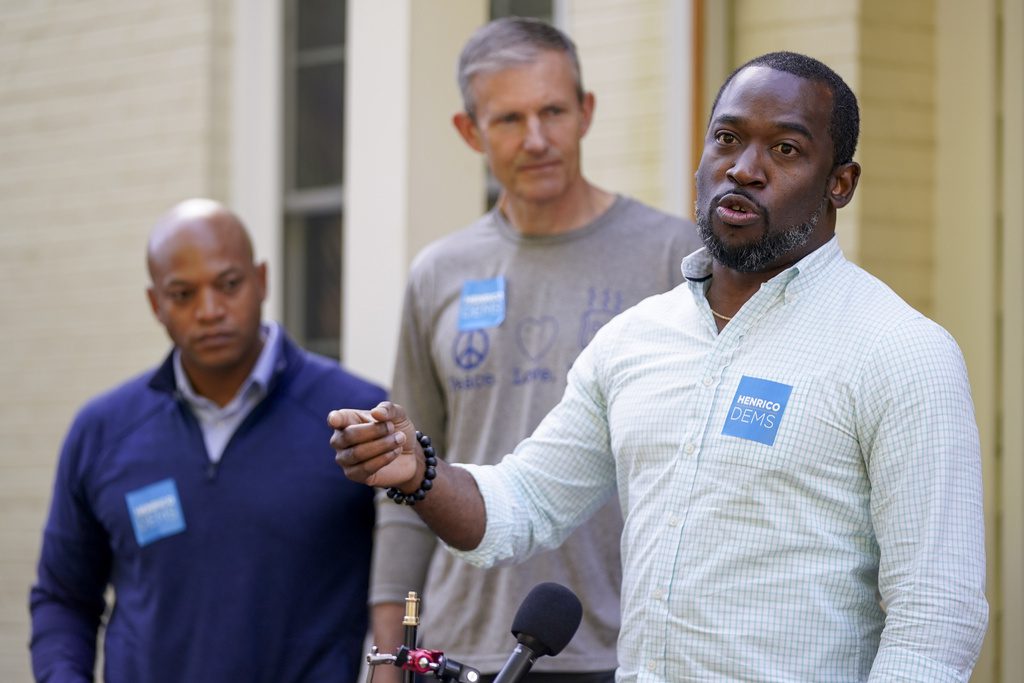
Virginia State Capitol in Richmond, Va. (Bob Brown/Richmond Times-Dispatch via AP, Pool)
Now that the midterms have passed and with the new Congress being seated, it might seem as though election season has wound down. On the contrary: for states like Virginia, it’s always election season.
In 2023, Virginia will hold state Senate and House of Delegates elections to elect lawmakers to all 140 General Assembly seats; the upper chamber has 40 seats, the lower has 100. The primary is scheduled for June 20, 2023, and the general election will occur on Nov. 7, 2023.
The Old Dominion is one of the few states that hold these “off-year” elections. But why?
As WAMU’s Martin Austermuhle writes, is Virginia specifically, purposely trying to cut against the grain? Or did legislators pick this election schedule because it’s objectively better than aligning with presidential or congressional contests?
To learn why, one has to go all the way back to the 19th century, when Virginians first gained the right to directly elect a governor through the 1851 constitution. And they continued to do just that in 1855, 1859, and 1863. After that, the Civil War interrupted the normal course of many things, including elections, and in late 1867 and early 1868, a constitutional convention gathered to write a new state constitution as part of Reconstruction. That constitution was scheduled to be ratified in 1868, but for a variety of reasons, as Brent Tarter, a retired senior editor and historian at the Library of Virginia, says, the ratification referendum and the associated general election got put off until the summer of 1869.
“At that time, voters ratified the constitution and elected a governor, and that set in train the four-year cycle for Virginia governors,” Tarter tells WAMU. “And ever since then, we’ve elected the governor in the year after a presidential election.” This off-year cycle applied to elections for Virginia’s Senate and House of Delegates, as well.
Austermuhle goes on to say that while Virginia’s election schedule may have been a simple accident of history, but keeping it that way certainly hasn’t been. Many historians and political analysts believe Virginia’s election schedule has worked to benefit incumbent politicians and “political machines” that have traditionally been resistant to change in the state. The most notorious of these machines in the Old Dominion was that of Harry F. Byrd.
The longtime leader of Virginia’s Democratic Party and the commonwealth’s governor from 1926 to 1930, Byrd worked with Democrats of the time to write a new constitution in 1902 that severely limited voting in Virginia — and virtually eliminated Black voters from the franchise. Consequently, throughout the first half of the 20th century, Virginia had some of the lowest voter turnout rates in the country.
It wasn’t until 1971 that Virginia adopted a new constitution and eliminated many of these voting restrictions. One thing that stuck, though, was the off-year elections. Old habits die hard, as they say. And there are some who think this schedule works to benefit Virginia’s voters: as Tarter notes, “it keeps controversial presidential candidates or controversial national issues from influencing elections that ought to be on state candidates and state issues.” But as Geoffrey Skelley, a senior elections analyst at FiveThirtyEight, points out, this schedule can also work against local politics, since the commonwealth’s gubernatorial election is now regularly seen as a test for how well–or not–a president and their party are doing. The same goes for state Senate and House of Delegates elections.
There’s another big issue with Virginia’s election schedule: turnout. While various voting reforms have boosted electoral participation in recent years, turnout rates still remain comparatively low for these off-year elections.
“Virginia, Louisiana, and New Jersey changed their state elections to off years at times when their state leadership, whether Democrat- or Republican-controlled, was concerned that a changing national political climate would throw them out of power,” voting advocacy group Democracy Docket notes. “No matter the popularity of the current president, state leaders wanted to avoid running their local elections on the presidential or congressional midterm tickets, so they moved their election years.”
Off-year elections impact turnout in a number of ways. First, even though Virginia’s elections have been on this schedule for decades, it’s still harder to raise voter awareness in a year without presidential or congressional races on the ballot. This often means that certain voters make up a disproportionate amount of the electorate: older, whiter, wealthier, and more conservative.
And the numbers back this up: in the last Virginia off-year election in 2021, 54.9% of the electorate came out to vote. During the 2020 presidential election, 75.08% of the electorate voted. As Democracy Docket stresses, high voter turnout is vital to a healthy democracy, especially if low turnout means that the electorate is not representative of the population as a whole.
Voter turnout especially matters when issues such as the reproductive rights of Virginians are on the line. What the historically lower numbers mean for 2023’s election remains to be seen.
Politics

Biden administration bans noncompete clauses for workers
The Federal Trade Commission (FTC) voted on Tuesday to ban noncompete agreements—those pesky clauses that employers often force their workers to...

Democratic shakeup in Virginia primaries for governor, lieutenant governor
Richmond Mayor Levar Stoney quit his bid for governor and jumped into the race to be the Democratic nominee for lieutenant governor. The race for...
Local News

Virginia verses: Celebrating 5 poetic icons for National Poetry Month
There’s no shortage of great writers when it comes to our commonwealth. From the haunting verses of Edgar Allan Poe, who found solace in Richmond's...

Join the fun: Recapping Family Literacy Night’s storybook adventures
When’s the last time you read a book aloud with a loved one? If it’s difficult to answer that question, then maybe it’s time to dust off that TBR...





